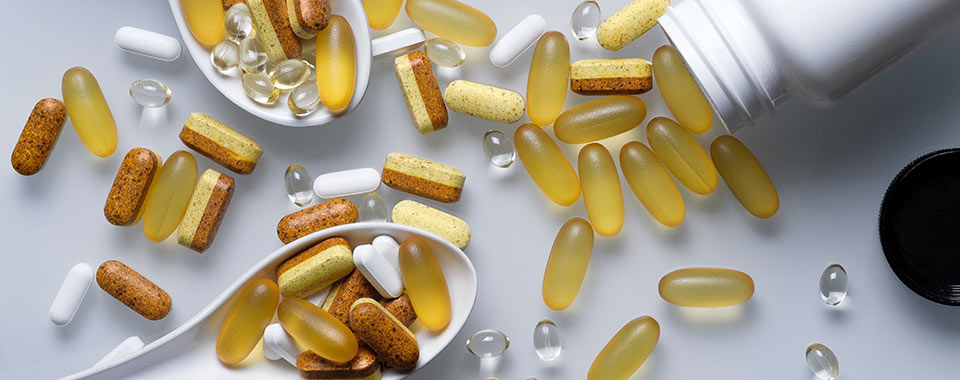4 Tips for Telling if your Fish Oil is FRESH
When you’re buying produce or fish, you look for freshness.
You should do the same if you want the best fish oil supplements.
But most people are not sure how to do that.
What does ‘fresh’ fish oil mean?
Simply put, it means that the fish oil is not rancid.
Rancid fish oils not only smell bad, they generate harmful free radicals in your body. Rancid or oxidized fish oil can do more harm than good.
Continued use of rancid fish oils, over time, can increase your ‘free radical load,’ and this could lead to premature aging or make you sick.
Fortunately, freshness can be chemically measured in a lab. We’ll get to that in a bit.
How to choose the freshest fish oil?
Here are 4 Tips:
- Smell – passing the sniff test.
-
-
- This is the easiest way to tell if oil is oxidized. Old, rotten oils smell like rotting fish.
- If you burp up fish oil, that’s normal, especially if you’re new to taking fish oil.
- But if the smell from the burp is awful and makes you gag, you may have rancid oil.
- Fresh fish oil smells oily or slightly fishy like the ocean.
-
- Freshness can be measured.
- Peroxide Value. This is a measure of rancidity that has occurred during storage. This number must be less than 5 meq/Kg. If it is higher, it means that the oil has been exposed to oxygen and therefore oxidized. Lower the better, but no oil will be zero.
- Anisidine Value. This also measure fish oil rancidity, but it measure chemicals other than peroxides. This value should be less than 20 meq/Kg. Again, if it higher than 20, it means the oil has become unstable and smelly. Again, lower the better, but no oil will be zero.
- Acid Value. As fish oil becomes more rancid, more acid is present in the oil. The Acid Value should be less than 3 mg KOH/gram. If higher than 3, your product is rancid.
- TOTOX Value. This should be less than 26 meq. This is a calculated value based on Peroxide and Anisidine values.
Using modern technologies, chemists can measure exactly how fresh your fish oil is.
These values are not arbitrary. They are strict guidelines followed by:
- CRN (Council for Responsible Nutrition)
- GOED (Global Organization for EPA and DHA Omega-3)
- IFOS (Internaltional Fish Oil Standards), a testing organization that specializes in testing fish oils.
Some fish oil manufacturers like EPAX have even stricter and lower numbers for these values.
OmegaVia uses EPAX oils exclusively.
EPAX oil limits:
Peroxide Value: less than 3 meq/kg
Anisidine Value: less than 15 meq/kg
Acid Value: 1 mg KOH/g
Fish Oil Purity Standards(Lower numbers indicate greater freshness) |
|||
|---|---|---|---|
| CRN | IFOS | OmegaVia | |
| Peroxide | < 5 meq/kg | < 3.75 meq/kg | < 3 meq/kg |
| Anisidine | <20 meq/kg | < 15 meq/kg | < 15 meq/kg |
| Acid | < 3 mg KOH/g | < 2.25 mg KOH/g | < 1 mg KOH/g |
| Totox | < 26 | < 20 | < 20 |
Fish oil can only be kept fresh if everyone involved in the manufacturing process is paranoid about rancidity. Fish oil must always be kept cold, dark and away from oxygen and metals.
Handling and processing must be under a zero-oxygen, all-nitrogen atmosphere because oxygen can react with the Omega-3 fats and nitrogen cannot.
When fish oil is stored in large barrels, the small amount of air in the barrel’s ‘head space’ must be flushed out with nitrogen. This process is called nitrogen flushing. It is not easy to do and the FDA does not require it. So many manufacturers don’t.
Cutting corners here will result in stinky, rancid oil that’s bad for your health.
Again, the secret is to keep fish oil cold, dark and away from oxygen. This tip will work for you even after you buy your fish oil.
You can easily keep your pills cold and dark by storing your fish oil pills in the refrigerator or freezer. You can’t do much about oxygen, but the gelatin capsule will keep most of the oxygen out.
3. Certificate of Analysis – get it!
Don’t trust it. Verify.
-
- This is an official document, sometimes called C of A. It contains results of extensive lab tests.
- If it’s from the manufacturer, don’t trust it. Only trust 3rd party C of A.
 |
Click Here to View Sample of 3rd Party Certificate of Analysis |
- This document should list Peroxide Value, Anisidine Value, Acid Value, Totox value to help you gauge the freshness of the oil.
- It should also list the amount of EPA, DHA and total Omega-3
- It should list amount of PCBs, dioxins, mercury, lead, arsenic and Cadmium.
- Make sure the company you buy your fish oil from has this information publicly accessible.
- Some C of As will just say “In spec.,” which is a nice way of saying ‘It’s fine. Don’t bother us.‘ That’s not good enough! You shouldn’t accept “It’s fine. Don’t worry,” as the answer.
- Make sure your C of A has numbers you can compare with established industry standards.
4. Expiration Date.
This is often an arbitrary date that’s 2 or 3 years from the date of manufacture. It may or may not be meaningful. If stored in a dark freezer, fish oil can last much longer than 3 years. Since FDA requires a date, most manufacturers will, well, just pick ‘3 years from date of manufacture’ as a safe alternative.
- Fish oil supplements can turn rancid long before its expiration date. Or stay fresh long after, depending on how it was stored before and after purchase.
- According to FDA regulations, every fish oil manufacturer must have data that proves that their product has been tested for shelf-life. Expiry dates must be based on this data.
- Each lot of a product will have its own expiry date. And manufacturers don’t like to sit on large inventory, so they will make new, small, fresh batches of fish oil to meet demand and keep their inventory low.
- We at OmegaVia, stand guilty of running out of product because of this reason. (We’ll do our best to not leave you stranded like that again! And thank you to 95% if you, who stuck with us!) On the plus side, this is good for you, the consumer, when it comes to freshness because new lots come from fresh batches of oil.
Bottom-line:
Most fish oil companies don’t make this process easy on you.
That stinks – no pun intended.
Ultimately, you are in charge of your health. And you should expect demand companies you buy foods or supplement from to openly provide you with information so you can make smart choices.
* These statements have not been evaluated by the Food and Drug Administration. This product is not intended to diagnose, treat, cure, or prevent any disease.




Do you know if there are any home test kits available to analyze fish oil oxidation levels?
Hi Mary,
There are no home test kits to measure fish oil oxidation. The simplest and easiest method it to be brave and bite down on one of the capsules! If it’s rancid and disgusting, well, you have your answer! Most good quality fish oil will be slightly fishy but tolerable. Still, you should also make sure you get product that is less than a year old (from date of manufacture) and then look for third-party oxidation numbers from sites like IFOS or others.
Vin
Hi Mary,
There are no home test kits to measure fish oil oxidation. The simplest and easiest method it to be brave and bite down on one of the capsules! If it’s rancid and disgusting, well, you have your answer! Most good quality fish oil will be slightly fishy but tolerable. Still, you should also make sure you get product that is less than a year old (from date of manufacture) and then look for third-party oxidation numbers from sites like IFOS or others.
Vin
I use a lot of fish oil at my house, so I like to buy it by the gallon. I store it in the refrigerator, and it separates. Before I use it, I shake it around. How long will an open gallon that is swished around ever day last in the ‘fridge? Thank you for you wonderful information.
Hi Ann – you buy fish oil by the gallon? Really?! I didn’t know you could do that.
If you buy it by the gallon, you and your family must consume it by the gallons! That’s not good for you! That’s adding an unbelievable amount of oxidative stress to your bodies. At most, you need 3 grams of Omega-3 per day combined with a healthy diet and exercise plan to manage triglycerides, but not much more.
Also, if the oil is separating…are you buying an emulsified fish oil smoothie? What brand? I don’t think the oil separating is the problem. You may want to drastically cut back on Omega-6-rich vegetable oils, sugar, refined starches and increase other healthy fats – olive oil, pastured butter and coconut oil, along with grass-fed meats and fish.
Then you can cut back to a teaspoon of fish oil every now and then.
I use a lot of fish oil at my house, so I like to buy it by the gallon. I store it in the refrigerator, and it separates. Before I use it, I shake it around. How long will an open gallon that is swished around ever day last in the ‘fridge? Thank you for you wonderful information.
Hi Ann – you buy fish oil by the gallon? Really?! I didn’t know you could do that.
If you buy it by the gallon, you and your family must consume it by the gallons! That’s not good for you! That’s adding an unbelievable amount of oxidative stress to your bodies. At most, you need 3 – 4 grams of Omega-3 per day along with a healthy diet and exercise plan to manage triglycerides, but not much more.
Also, if the oil is separating…are you buying an emulsified fish oil smoothie? What brand? I don’t think the oil separating is the problem. You may want to drastically cut back on Omega-6-rich vegetable oils, sugar, refined starches and increase other healthy fats – olive oil, pastured butter and coconut oil, along with grass-fed meats and fish. Then you can cut back to a teaspoon of fish oil every now and then.
Hi RB – both fish and fish oil supplements are going to be very slightly oxidized. Unless you catch the fish and eat it right on the boat, oxidation will have set in. That’s just a reality. A peroxide value of 1 at manufacture does not mean much because you have no idea what it is at the point you’re consuming it. If the product was IFOS tested, you’d have a slightly better idea, given when the product expires.
If the product was really rotten, you’d know. If it smelled like the seafood section of the grocery store, it was probably not rotten. Me thinks you panicked.
Hi RB – both fish and fish oil supplements are going to be very slightly oxidized. Unless you catch the fish and eat it right on the boat, oxidation will have set in. That’s just a reality. A peroxide value of 1 at manufacture does not mean much because you have no idea what it is at the point you’re consuming it. If the product was IFOS tested, you’d have a slightly better idea, given when the product expires.
If the product was really rotten, you’d know. If it smelled like the seafood section of the grocery store, it was probably not rotten. Me thinks you panicked.
I recently received an Omegavia bottle from Amazon. It does smell a little fishy, does that mean it is rancid?
Hi JB – sorry to hear that. This is unusual. It does not mean it is rancid. There may have been a leaker in the bottle – this is very rare but it happens. Please call our customer service line at 800-270-4010 and they will send you another bottle free of charge. Or you may send an email to service@omegavia.com with details.
Thank you, I will email customer service. I had taken one pill last night, is that an issue if there was a leaker?
Hi JB – it’s an odor issue mostly. It will make the bottle and other pills stink. Otherwise, no safety issues at all.
I recently received an Omegavia bottle from Amazon. It does smell a little fishy, does that mean it is rancid?
Hi JB – sorry to hear that. This is unusual. It does not mean it is rancid. There may have been a leaker in the bottle – this is very rare but it happens. Please call our customer service line at 800-270-4010 and they will send you another bottle free of charge. Or you may send an email to service@omegavia.com with details.
Thank you, I will email customer service. I had taken one pill last night, is that an issue if there was a leaker?
Hi JB – it’s an odor issue mostly. It will make the bottle and other pills stink. Otherwise, no safety issues at all.
Hi,
I just received my omegavia bottles, is it best for me to store them all in the refrigerator to reduce further oxidation over time?
Thanks
Hayden
Hi Hayden – you may keep the products at room temperature. If you wish, you may keep the unopened bottles in the refrigerator or freezer, which will reduce the oxidation a bit. But the opened bottle may certainly remain out at room temperature. Even if you keep all the bottles at room temperature, the Omega-3 content of the product is guaranteed till the expiry date.